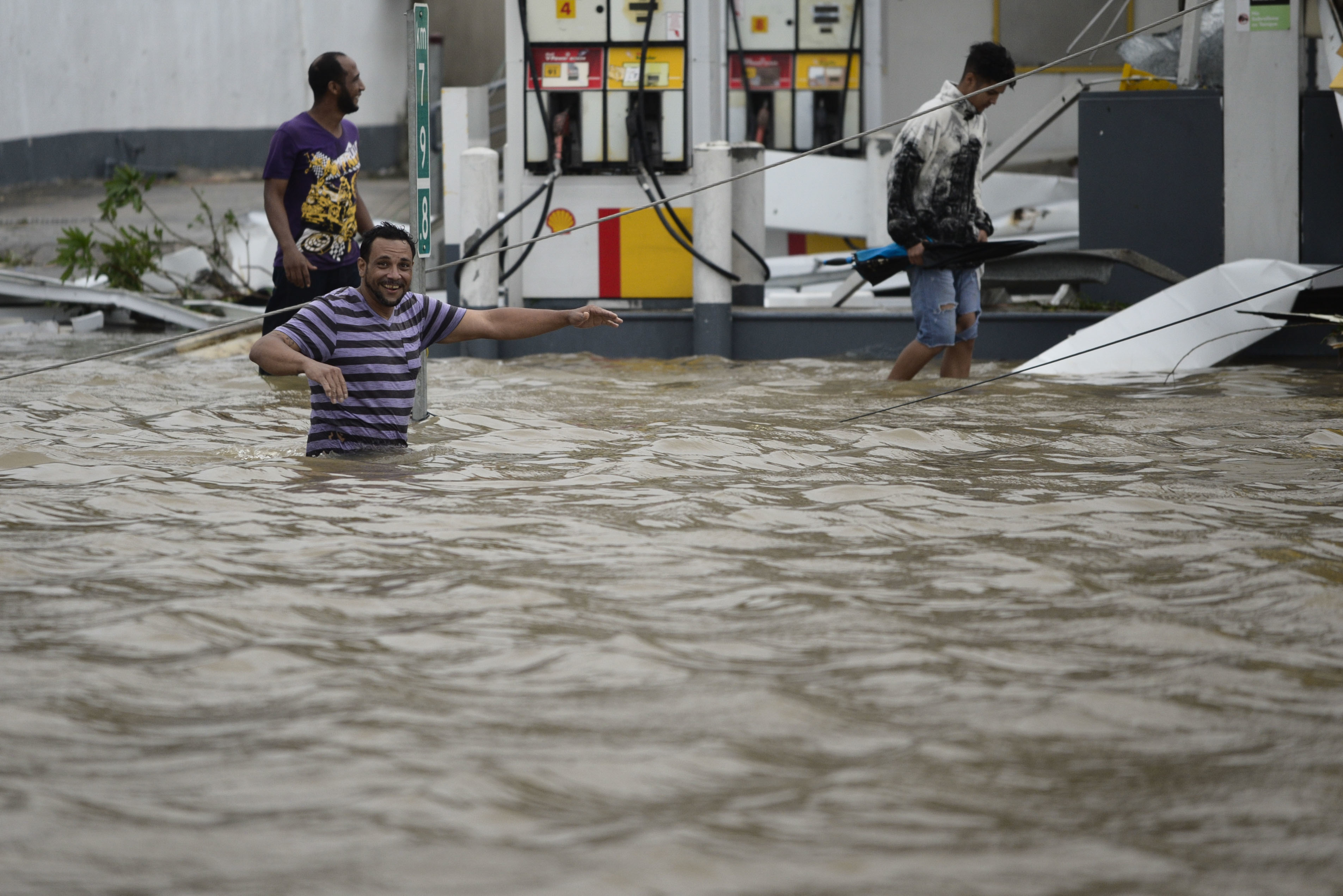Thursday
Increasingly, Trump’s Maria is making Bush’s Katrina look like a day at the beach, what with continued breakdowns in communication, logistics, and distribution. Many still can’t get clean drinking water, and most of the island is still without electricity.
I find myself wondering if, American citizens or no, Puerto Ricans will one day be denied access to the mainland. After all, a million pissed-off residents moving to Florida could tilt the state blue in future elections. The idea came to my mind as I was reading Margaret Atwood’s Year of the Flood (2008), which imagines a wall between Texas and the rest of the United States after similar environmental disasters.
Atwood’s deep understanding of socio-economic, environmental and technological issues gives credibility to her dystopian literature. In Year of the Flood, conditions have become so bad that a mad scientist finally decides to wipe out the human race with a super-destructive virus. Before he does so, however, we see the effect of extreme class inequality and unregulated capitalism. Texas, we learn, suffers alternately from (sound familiar?) extreme droughts and super-intense hurricanes.
We get this account from a Texas immigrant:
Amanda told me about the droughts in Texas—how her parents had lost their Happicuppa coffee franchise and couldn’t sell their house because no one would buy it, and how there were no jobs and they’d ended up in a refugee camp with old trailers and a lot of Tex-Mexicans. Then their trailer was demolished in one of the hurricanes and her father was killed by a piece of flying metal. A lot of people drowned, but she and her mother held on to a tree and got rescued by some men in a rowboat. They were thieves, said Amanda, looking for stuff they could lift, but they said they’d take Amanda and her mother to dry land and a shelter if they’d do a trade.
“What kind of trade?” I said.
“Just a trade,” said Amanda.
The trade probably involves sex although Amanda never confirms this.
At first Amanda and her mother are put in a football stadium with tents. After her mother dies from contaminated drinking water, Amanda escapes because
the refugees were supposed to be farmed out to work in whatever job they were told to. “No free lunch,” people were saying: you had to pay for everything, one way or another.
Atwood captures here the paternalism we are also seeing from some who lecture Puerto Rico, starting with the president. Those who have had bad luck are expected to pay back any aid with interest, the assumption being that they want this free lunch.
Amanda walks north with thousands of others. The one time she hitches, she has to fend off a sexual assault. And then:
“Then I had to get past the Wall,” she said.
“What wall?”
“Don’t you watch the news? The Wall they’re building to keep the Tex refugees out, because just the fence wasn’t enough. There’s men with sprayguns—it’s a CorpSeCorps wall. But they can’t patrol every inch—the Tex-Mex kids know all the tunnels, they helped me get through.”
“You could’ve been shot,” I said.
Amanda lays out two different ways that people respond to the catastrophes:
In her place I would have just laid down in a ditch and cried myself to death. But Amanda says if there’s something you really want, you can figure out a way to get it. She says being discouraged is a waste of time.
All power to those who refuse to be discouraged, but not all have Amanda’s power. In any event, America hasn’t arrived at Atwood’s dystopia yet. Our president seems determined to get us there, however.


